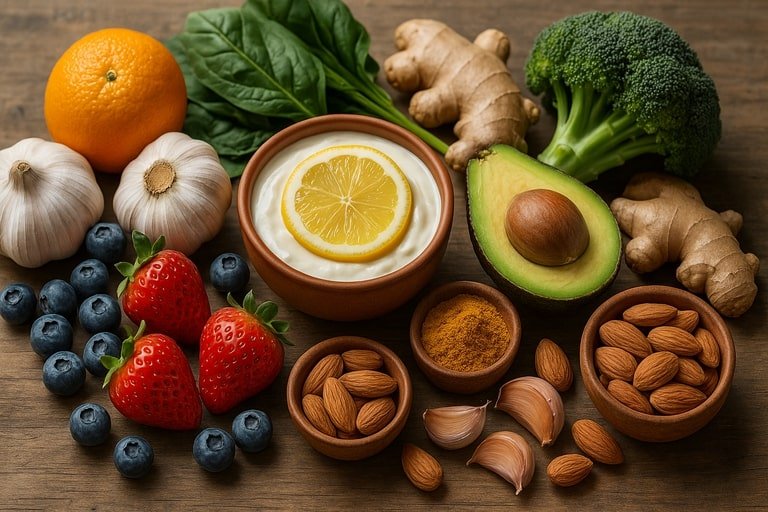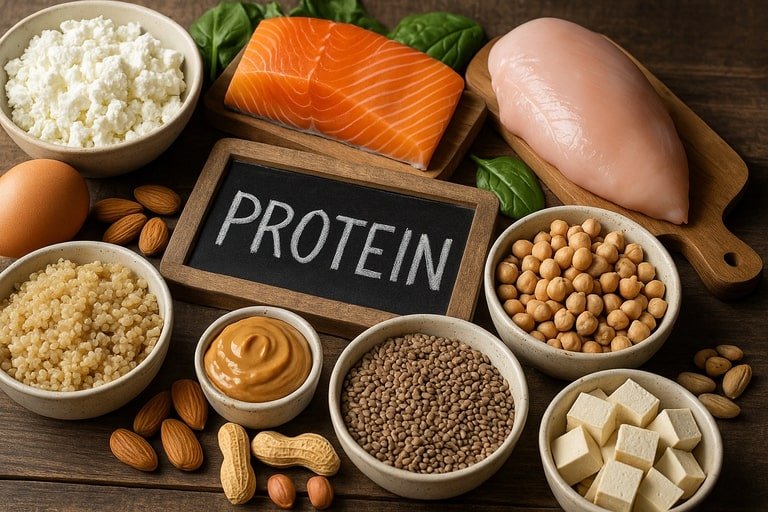Probiotics benefits extend far beyond the marketing buzz that often surrounds them, forming one of the most significant discoveries in nutrition and medicine in recent decades. Probiotics are live microorganisms, usually bacteria or yeasts, that when consumed in adequate amounts provide measurable health improvements. Their impact lies in the intimate connection between gut flora and almost every aspect of human health, from digestion to immunity, metabolism, and even mental well-being. Understanding probiotics benefits requires an appreciation of the gut microbiome, a diverse community of trillions of organisms that influence the body’s most fundamental processes. By supporting and restoring microbial balance, probiotics act not merely as supplements but as active partners in maintaining and restoring health.
The most obvious probiotics benefits are seen in digestive health. Conditions such as irritable bowel syndrome, diarrhea, and constipation often stem from imbalances in intestinal flora. Clinical studies show that probiotics can restore microbial diversity, enhance gut motility, and reduce inflammation. For example, strains like Lactobacillus rhamnosus and Bifidobacterium longum have been shown to reduce the frequency and severity of diarrhea caused by antibiotics or infections. By reinforcing the gut barrier, probiotics prevent pathogens from gaining dominance, supporting stability and resilience within the digestive system.
Another central area of probiotics benefits lies in immune modulation. The gut is not only a digestive organ but also a frontline immune hub, containing a large portion of the body’s immune cells. Probiotics stimulate production of natural antibodies, enhance activity of T-cells, and promote communication between gut bacteria and immune regulators. This translates into better defense against infections, faster recovery from illness, and reduced risk of chronic inflammation. In populations vulnerable to infections such as children or the elderly, probiotic supplementation has demonstrated protective effects that go beyond digestion.
Mental health also connects to probiotics benefits through the gut-brain axis. Research into psychobiotics—probiotics that influence mental states—has revealed promising results. By reducing systemic inflammation, improving neurotransmitter synthesis, and regulating stress hormones, probiotics have been linked to reduced anxiety, depression, and stress reactivity. While not a replacement for traditional psychiatric care, probiotics demonstrate how nutrition and microbiota directly influence brain health. This connection reframes probiotics not as niche supplements but as integral to whole-body wellness.
Metabolic improvements further highlight probiotics benefits. Individuals struggling with obesity, insulin resistance, or metabolic syndrome often have disrupted gut microbiota. By restoring balance, probiotics enhance nutrient absorption, regulate blood sugar, and reduce low-grade inflammation associated with weight gain. Some studies suggest that specific strains may influence appetite regulation or fat storage, though results vary across individuals. Nonetheless, the growing evidence shows that probiotics support healthier metabolism when combined with balanced diets and lifestyle modifications.
Probiotics benefits also extend into women’s health. Vaginal and urinary tract health depend heavily on microbial balance. Lactobacillus strains in particular play a protective role by producing lactic acid, which lowers pH and prevents harmful bacteria from thriving. Probiotic supplementation reduces the recurrence of urinary tract infections and bacterial vaginosis, offering a natural adjunct to medical care. This demonstrates how probiotics influence not only internal digestion but also external microbial ecosystems critical to health.
Children represent another group where probiotics benefits are strongly evident. From reducing colic in infants to improving immune resilience in school-aged children, probiotics support healthy development. The neonatal period is crucial for establishing gut microbiota, and probiotic supplementation can offset disruptions caused by cesarean delivery or antibiotics. Pediatric applications highlight the long-term significance of gut health, as early microbial stability influences lifelong immunity and metabolic outcomes.
The elderly also experience unique probiotics benefits. With age, gut microbiota diversity decreases, leading to weaker immunity, slower digestion, and greater vulnerability to infections. Supplementation restores some microbial richness, reduces constipation, and strengthens immune response to vaccines. For older adults, probiotics represent a simple yet powerful intervention that improves both daily comfort and long-term resilience.
Practical applications of probiotics extend into everyday nutrition. Fermented foods such as yogurt, kefir, kimchi, sauerkraut, and miso provide natural sources of beneficial microbes. While supplements offer precise doses of specific strains, traditional foods provide diversity that enriches the microbiome. Regular consumption of such foods demonstrates that probiotics benefits are not confined to capsules but embedded in dietary traditions across cultures.
Finally, probiotics benefits must be seen in context: they are not magic bullets but part of a holistic health strategy. Diet, exercise, sleep, and stress management all influence microbiota. Probiotics amplify these foundations but cannot compensate for poor lifestyle choices. Recognizing this ensures realistic expectations and effective use. The science of probiotics continues to expand, but even today the evidence shows that they play an indispensable role in health promotion and disease prevention.
In conclusion, probiotics benefits encompass digestion, immunity, metabolism, and mental health, touching nearly every system of the body. Their impact proves that microbial balance is not a fringe topic but a central pillar of human health. By incorporating probiotics through food or supplementation, individuals take proactive steps toward resilience, vitality, and well-being. The field of probiotics stands as a testament to how small organisms wield vast influence over human life.
Probiotic Benefits in Therapy and Wellness
When we shift focus from general health to probiotic benefits in therapeutic contexts, the scope of their importance broadens even further. Probiotic therapy has become a serious area of clinical research, with applications in gastrointestinal diseases, allergy management, and even oncology. Their role is no longer limited to digestive comfort but extends to measurable outcomes in disease prevention and treatment support. This elevation of probiotics from dietary supplements to therapeutic tools reflects the maturity of modern medical understanding.
One of the strongest areas of probiotic therapy is in preventing antibiotic-associated diarrhea. Antibiotics, while lifesaving, indiscriminately wipe out harmful and beneficial bacteria alike. This disruption creates opportunities for pathogens such as Clostridioides difficile to cause severe infections. Probiotic supplementation during and after antibiotic treatment replenishes gut flora and reduces the risk of complications. Evidence shows that strains such as Saccharomyces boulardii and Lactobacillus casei are particularly effective in this context.
Allergy management also demonstrates probiotic benefits. Children at risk of atopic dermatitis, asthma, or food allergies often show improved outcomes when probiotics are introduced early in life. By modulating immune responses and reducing inflammatory reactions, probiotics reduce the severity and frequency of allergic symptoms. This immune balancing act shows how probiotics extend beyond digestion to influence the entire body’s regulatory networks.
In inflammatory bowel diseases such as ulcerative colitis or Crohn’s disease, probiotics serve as adjunct therapy. While not curative, they reduce flare-ups, support remission, and improve quality of life. The mechanism involves restoring mucosal barrier function, suppressing inflammatory cytokines, and increasing regulatory T-cell activity. For patients, this translates into fewer symptoms and reduced reliance on high-dose medications. Probiotic therapy becomes a bridge between pharmacology and lifestyle medicine.
Cancer care represents another area where probiotic benefits are under investigation. Patients undergoing chemotherapy or radiotherapy often experience gastrointestinal distress, immune suppression, and infections. Probiotic supplementation shows potential in reducing side effects, improving gut integrity, and enhancing tolerance to treatments. While still an emerging field, these findings highlight the therapeutic versatility of probiotics. They are not confined to wellness trends but represent serious contributions to clinical care.
Metabolic disorders provide further evidence. Probiotic therapy has been shown to reduce cholesterol, improve insulin sensitivity, and support weight management. These outcomes align with broader public health goals of addressing obesity and diabetes epidemics. While probiotics are not replacements for diet and exercise, they act as powerful allies, amplifying the effects of other interventions. Their inclusion in therapy demonstrates how comprehensive treatment plans incorporate both medical and nutritional science.
The psychological impact of probiotic therapy also deserves attention. By modulating the gut-brain axis, probiotics reduce depressive symptoms, improve mood stability, and lower perceived stress. Clinical trials investigating psychobiotics show that targeted strains can influence neurotransmitter balance, cortisol regulation, and even sleep quality. For patients with chronic illness, this mental health support becomes as valuable as physical symptom relief.
In elderly populations, probiotic therapy improves vaccine responses, reduces infections, and enhances overall vitality. These outcomes directly address challenges in aging societies, where immune decline creates vulnerabilities. Incorporating probiotics into routine geriatric care represents a low-risk, high-benefit strategy for public health systems.
Practical delivery methods of probiotic therapy are expanding. Beyond capsules and yogurts, researchers explore encapsulation technologies that protect strains from stomach acid, ensuring they reach the intestines alive. Such innovations increase the reliability and potency of probiotic supplementation, transforming it into a precise therapeutic tool.
In sum, probiotic benefits in therapy confirm that these microorganisms are not minor wellness fads but key players in medicine. From infection prevention to chronic disease support, their role continues to grow. Integrating probiotics into therapeutic frameworks demonstrates the power of merging microbiology with clinical care. They embody the principle that health solutions often lie in supporting natural systems rather than overriding them.
Probiotics Benefits and Digestive Balance for Health
Digestive health remains the most visible and widely acknowledged domain of probiotics benefits, and for good reason. The human gut microbiome orchestrates digestion, nutrient absorption, immune signaling, and barrier function. Disruption of this ecosystem manifests quickly as bloating, constipation, diarrhea, or abdominal pain. Probiotics help restore harmony, making digestive balance one of their most accessible and appreciated contributions.
One clear digestive benefit is improving lactose tolerance. Many individuals lack the enzyme lactase, causing discomfort when consuming dairy. Certain probiotic strains produce lactase within the gut, reducing symptoms and allowing individuals to enjoy dairy products without distress. This practical application shows how probiotics directly address everyday digestive problems.
Irritable bowel syndrome (IBS) highlights another area of probiotics benefits. Patients with IBS often experience abdominal pain, irregular bowel habits, and bloating, with limited relief from conventional therapies. Probiotics improve stool regularity, reduce pain, and enhance overall gut comfort by balancing microbial populations. Studies consistently show that multi-strain probiotics provide the greatest benefits, underscoring the complexity of gut ecology.
Constipation, particularly chronic cases, often responds well to probiotic supplementation. By stimulating peristalsis and softening stools through increased short-chain fatty acid production, probiotics improve bowel movements naturally. Unlike laxatives, which can create dependency, probiotics work with the body’s natural processes, offering sustainable relief.
In cases of infectious diarrhea, probiotics shorten duration and reduce severity. This is especially important in children, where dehydration from diarrhea can quickly become dangerous. Supplementation with appropriate strains restores gut flora, strengthens mucosal defenses, and accelerates recovery. These results demonstrate the life-saving potential of probiotics in vulnerable populations.
Gut barrier integrity also benefits from probiotic supplementation. A healthy intestinal lining prevents harmful substances from leaking into the bloodstream, reducing systemic inflammation. Probiotics enhance the production of mucus, stimulate epithelial cell growth, and regulate tight junction proteins, reinforcing this barrier. The result is better digestion and reduced risk of chronic inflammatory conditions.
Probiotics benefits also extend to reducing gastrointestinal side effects of medications beyond antibiotics. Nonsteroidal anti-inflammatory drugs and chemotherapy agents frequently damage gut lining, causing ulcers or bleeding. Probiotic support reduces these risks, preserving digestive comfort during treatment. This protective role demonstrates the versatility of probiotics across diverse clinical settings.
Beyond immediate digestive relief, probiotics improve nutrient absorption. Vitamins such as B12, folate, and vitamin K rely on microbial synthesis. Probiotic supplementation ensures adequate production and uptake, supporting broader health. This biochemical contribution shows that probiotics not only reduce discomfort but also enhance vitality through nutrient optimization.
The gut microbiota also influences bile acid metabolism, which in turn regulates cholesterol and fat absorption. By modulating bile acids, probiotics contribute to better lipid profiles and digestive efficiency. This mechanism explains part of the link between probiotics, metabolism, and cardiovascular health.
Children with colic provide a striking example of probiotics benefits in digestion. Probiotic supplementation reduces crying time and improves gut comfort, providing relief not only to infants but also to families. This pediatric application highlights how probiotics touch lives from the earliest stages of development.
In conclusion, digestive balance represents the foundation of probiotics benefits. From alleviating lactose intolerance to restoring gut barrier function, probiotics serve as guardians of gastrointestinal well-being. Their effects ripple outward into immunity, metabolism, and even mental health, proving that digestion is central to holistic wellness. Probiotics benefits in this context are both immediate and long-term, offering practical relief and systemic resilience.
Modern nutrition has increasingly turned its focus toward the invisible ecosystem living inside the human digestive tract. This microbiome, made up of trillions of bacteria, fungi, and other microorganisms, directly influences digestion, immunity, and even mood. In recent years, researchers have placed particular attention on probiotics, the live microorganisms that support balance in this internal ecosystem. When people ask about probiotics benefits, they are essentially exploring how these microscopic allies contribute to overall health.
The gut microbiome is central to digestion. Without the support of beneficial bacteria, the body struggles to break down complex fibers, produce vitamins, or absorb nutrients efficiently. Probiotics supply reinforcements to this system, especially after disturbances such as illness or antibiotic use. By replenishing beneficial bacteria, probiotics help restore stability and support digestive comfort.
Immunity is another area influenced by probiotics. Nearly 70% of the immune system resides in the gut, where it interacts with microbes daily. Probiotics enhance this relationship by improving the gut barrier, training immune cells to distinguish between harmful and harmless agents, and reducing unnecessary inflammation. This makes them a valuable tool for supporting resilience against infections.
Beyond digestion and immunity, probiotics also affect metabolism. Studies suggest that balanced gut flora helps regulate weight by influencing how the body processes fats and sugars. An imbalance in the microbiome, known as dysbiosis, has been linked to obesity and metabolic syndrome. Probiotics may help tilt the balance back toward healthier processing of nutrients.
Mental health research has uncovered a “gut-brain axis,” highlighting communication between the digestive system and the nervous system. Probiotics appear to reduce anxiety, improve mood, and even support better sleep through neurotransmitter production. While research is still developing, early findings are promising.
Skin health may also benefit. Conditions like eczema, acne, and rosacea are often tied to inflammation and immune dysfunction, both of which are influenced by gut health. Probiotics reduce systemic inflammation, which can lead to clearer skin and fewer flare-ups.
Heart health is another area of exploration. Some strains of probiotics may lower cholesterol and blood pressure, offering natural support for cardiovascular wellbeing. Although not a replacement for medical treatment, probiotics may provide additional protection when combined with lifestyle adjustments.
For women, probiotics play a special role in maintaining vaginal health. By preserving a balance of healthy bacteria, they reduce risks of infections such as bacterial vaginosis or yeast overgrowth. This demonstrates how probiotics extend their influence beyond the gut.
Not all probiotics are equal, however. Different strains have different effects, and the form of delivery—capsules, fermented foods, or powders—matters for effectiveness. This is why expert guidance is valuable when choosing supplements.
Safety is generally high, though immunocompromised individuals should consult healthcare providers before use. For most healthy adults, probiotics represent a safe and natural way to support long-term wellness.
Future research continues to expand understanding. Scientists are investigating targeted probiotics for conditions such as inflammatory bowel disease, depression, and allergies. With each discovery, probiotics shift further from a wellness trend to a cornerstone of integrative medicine.
Ultimately, the power of probiotics lies in their ability to restore and maintain balance. While not a cure-all, they represent one of the most exciting areas of nutritional science, connecting microscopic allies to macroscopic health outcomes.
Among the most talked-about topics in nutrition today is the role of probiotics. Countless studies now focus on probiotics benefits, showing how these live microorganisms support digestion, immunity, and even mood. This article takes a deep dive into the science of probiotics benefits, explaining why they matter and how to make the most of them.
The digestive system is the first area where probiotics benefits become clear. By restoring balance to gut bacteria, probiotics help break down complex fibers, absorb nutrients, and prevent discomfort. For people struggling with bloating or irregularity, the most noticeable probiotics benefits include smoother digestion and reduced inflammation.
The immune system is another key domain for probiotics benefits. Because so much of immunity is tied to the gut, probiotics help strengthen defenses. Studies show that among the most consistent probiotics benefits is the reduction in upper respiratory infections and faster recovery from colds. This makes them an important daily support for wellness.
Weight management has also been linked to probiotics benefits. Certain strains appear to regulate how the body stores fat and uses glucose. For people seeking natural ways to improve metabolism, one of the most exciting probiotics benefits is their potential to reduce obesity-related risks.
Research on mental health has identified fascinating probiotics benefits. Through the gut-brain axis, probiotics help regulate neurotransmitters like serotonin. The result is improved mood, reduced anxiety, and even better sleep. These probiotics benefits suggest that mental health and gut health are far more connected than once thought.
Skin conditions often improve thanks to probiotics benefits. By lowering inflammation and balancing immune responses, probiotics may reduce acne, eczema, and rosacea flare-ups. Many dermatologists now discuss probiotics benefits with patients as part of holistic care.
Cardiovascular wellness is another field seeing probiotics benefits. Some strains lower cholesterol and reduce blood pressure, supporting long-term heart health. Combined with diet and exercise, these probiotics benefits make probiotics an attractive natural therapy.
Women’s health strongly reflects probiotics benefits. By maintaining vaginal flora, probiotics reduce infections and improve overall comfort. This specific aspect of probiotics benefits demonstrates how wide-reaching their effects can be.
Product quality determines the strength of probiotics benefits. Different strains produce different results, and not all supplements are equally effective. To maximize probiotics benefits, individuals must choose clinically studied strains and proper dosages.
Safety and long-term use are encouraging. For most people, the only noticeable side effect is mild digestive adjustment. Thus, probiotics benefits can be accessed with minimal risk, making them a low-barrier option for daily health support.
Looking forward, clinical trials are uncovering even more probiotics benefits, from allergy reduction to improved management of chronic illness. As evidence grows, probiotics are no longer just a wellness trend but a serious medical tool.
In summary, the list of probiotics benefits continues to grow. From digestion and immunity to mood and skin, probiotics support the body in multiple ways. For anyone curious about natural ways to improve health, exploring probiotics benefits is a smart step forward.
The microbiome has become one of the most fascinating discoveries in modern science, and probiotics are at the center of this conversation. When people discuss probiotics benefits, they are pointing to the ways beneficial bacteria improve digestion, immunity, and general wellness. The following guide explores the many proven probiotics benefits and explains why these tiny organisms have such a big impact.
Digestion is the most obvious area where probiotics benefits appear. By balancing gut flora, probiotics help reduce bloating, gas, and constipation. People who add probiotics to their diet often report that one of the first noticeable probiotics benefits is improved regularity.
Immune system support is another powerful example of probiotics benefits. Studies show that probiotics help reduce infections and shorten illness duration. Parents, athletes, and health-conscious individuals all find that probiotics benefits provide a natural way to strengthen defenses.
Weight and metabolism also reflect probiotics benefits. Certain strains influence fat storage and glucose regulation. These probiotics benefits are especially important for those at risk of obesity or diabetes.
The connection between gut and brain is where probiotics benefits become particularly interesting. Improved mood, reduced anxiety, and better sleep are outcomes tied to neurotransmitter production in the gut. This link makes probiotics benefits relevant for both physical and mental health.
Skin improvements are frequently reported. Among the many probiotics benefits are clearer skin, fewer breakouts, and reduced inflammation. People with eczema or rosacea often experience relief thanks to probiotics.
Cardiovascular support adds another dimension. Some research links probiotics benefits with lower cholesterol and healthier blood pressure. This positions probiotics as valuable additions to heart health strategies.
Women’s wellness is also supported by probiotics benefits. Balanced flora reduces risk of vaginal infections and supports reproductive health. These gender-specific probiotics benefits highlight the versatility of probiotics.
Product quality influences results. Not all supplements are equal, and to experience consistent probiotics benefits, individuals should choose clinically studied strains. Understanding labeling and dosage is critical.
Safety is reassuring. For most people, probiotics are well tolerated. Mild digestive changes are temporary, and long-term use shows no serious risks. Thus, accessing probiotics benefits is simple for the majority of healthy adults.
Looking ahead, ongoing research continues to expand the known list of probiotics benefits. From allergy management to chronic illness support, scientists are discovering how much probiotics can do. These findings ensure probiotics will remain central in nutrition and medicine.
Ultimately, probiotics benefits represent a bridge between diet and health. By supporting digestion, immunity, mood, and beyond, probiotics empower individuals to take charge of their wellbeing.













